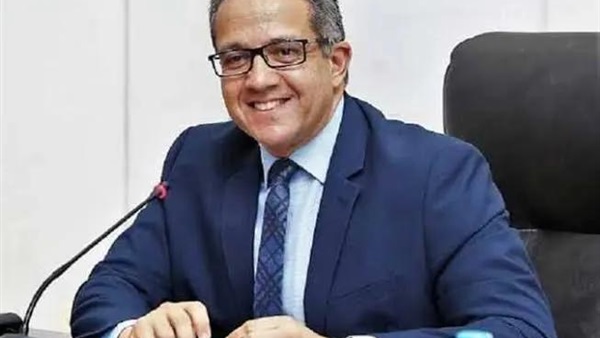With Strong Arab and International Support, Khaled El-Enany Stands One Step Away from Leading UNESCO
Sunday 05/October/2025 - 04:51 PM

As the election for the next Director-General of UNESCO approaches, Egypt’s Dr. Khaled El-Enany, former Minister of Tourism and Antiquities, has emerged as the frontrunner in a highly competitive race among three candidates from Egypt, Mexico, and the Republic of the Congo.
In recent months, Egypt’s Ministry of Foreign Affairs has waged an intense diplomatic campaign to rally Arab and international backing for El-Enany’s candidacy. Now, only hours before the decisive vote, El-Enany is seen as the candidate with the strongest prospects, bolstered by an unprecedented unified Arab consensus, in addition to support from France and the African bloc, despite the presence of another African contender — Firmin Edouard Matoko, former Assistant Director-General for External Relations at UNESCO.
Credentials That Align with UNESCO’s Mission
Dr. El-Enany, now just a step away from leading UNESCO, brings a career deeply rooted in heritage, archaeology, and culture — all at the core of the organization’s mission.
He previously served as Director of the Open Education Center at Helwan University, Chair of the Department of Tourism Guidance, and Vice Dean of the Faculty of Tourism and Hotels. He also sat on the Boards of Trustees of the French University in Egypt and several other academic institutions in Cairo.
El-Enany was a visiting professor at Paul-Valéry University in Montpellier eight times between 2006 and 2023, maintaining long-term collaboration with the French Institute for Oriental Archaeology (IFAO).
He supervised over 30 master’s and doctoral theses, participated in academic juries in Egypt and France, and earned widespread recognition in the field of Egyptology.
His public career began when he was appointed Minister of Antiquities in 2016, later serving as Minister of Tourism and Antiquities (2019–2022).
Among his honors are the French Order of Arts and Letters (Knight, 2015), the Polish Order of Merit (2020), and Japan’s Order of the Rising Sun (2021). He also received an Honorary Doctorate from Paul-Valéry University and holds honorary membership in the French Society of Egyptology as well as correspondent membership in the German Archaeological Institute.
UNESCO Election: From Paris to Samarkand
The selection process for UNESCO’s Director-General follows a detailed mechanism. It begins with public interviews before the Executive Board, followed by voting rounds scheduled to take place in Paris between October 1 and 16, 2025.
The Executive Board will then nominate a single name to be submitted to the General Conference, which is set to convene in Samarkand, Uzbekistan, in November 2025, for the final appointment.
According to Le Monde and other European outlets, this year’s race is tighter than in previous cycles, amplifying the significance of each voting round and bilateral alliance, where every vote may prove decisive.
Cairo’s Strategy: Lessons from 2017
Egypt enters this year’s contest with a more coordinated and strategic campaign, drawing on lessons from its 2017 loss to the current Director-General, Audrey Azoulay of France.
El-Enany’s bid rests on three core pillars:
Unified Arab and African support,
The backing of the host country, France, and
A record of cultural and diplomatic credibility.
He has secured official endorsement from the African Union (2024–2025) and from the Arab League in May 2024, forming a strong initial voting bloc that could expand through bilateral understandings.
In a notable development, the French Ministry of Foreign Affairs formally declared its “full support” for the Egyptian candidate — a move seen as symbolically powerful given that UNESCO’s headquarters are in Paris and France holds significant sway within the organization.
Challenges Ahead
Despite his strong position, El-Enany faces serious internal challenges, particularly from candidates with longstanding networks inside UNESCO. Both Ramos and Matoko currently occupy senior roles within the organization, granting them leverage in mobilizing internal voting blocs.
The successive voting rounds of the Executive Board are also highly sensitive, as alliances can shift rapidly with each outcome. Critical issues — such as education in crisis zones, heritage protection in conflict areas, and digital governance — may influence national priorities and, ultimately, the vote.
At present, indicators point to a relative advantage for Dr. Khaled El-Enany. Yet, his final victory depends on sustaining Arab and African momentum, maximizing French support, and forging new bridges with hesitant regional blocs ahead of the decisive vote in October 2025.





